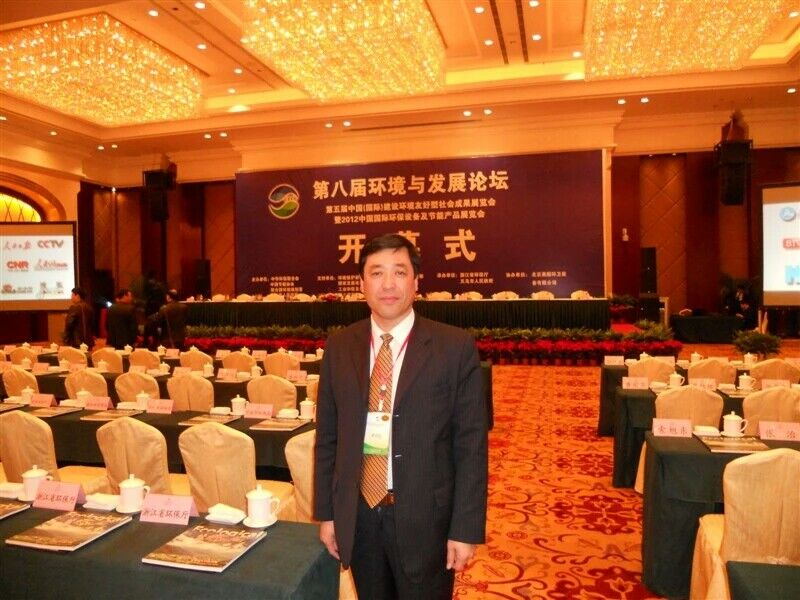Text
正文
The General Conference of the International Labour Organisation,
Having been convened at Geneva by the Governing Body of the International Labour Office, and having met in its Third Session on 25 October 1921, and
Having decided upon the adoption of certain proposals with regard to the weekly rest day in industrial employment, which is included in the seventh item of the agenda of the Session, and
Having determined that these proposals shall take the form of an international Convention,
adopts the following Convention, which may be cited as the Weekly Rest (Industry) Convention, 1921, for ratification by the Members of the International Labour Organisation in accordance with the provisions of the Constitution of the International Labour Organisation:
Having been convened at Geneva by the Governing Body of the International Labour Office, and having met in its Third Session on 25 October 1921, and
Having decided upon the adoption of certain proposals with regard to the weekly rest day in industrial employment, which is included in the seventh item of the agenda of the Session, and
Having determined that these proposals shall take the form of an international Convention,
adopts the following Convention, which may be cited as the Weekly Rest (Industry) Convention, 1921, for ratification by the Members of the International Labour Organisation in accordance with the provisions of the Constitution of the International Labour Organisation:
Article 1
1. For the purpose of this Convention, the term industrial undertaking includes--
(a) mines, quarries, and other works for the extraction of minerals from the earth;
(b) industries in which articles are manufactured, altered, cleaned, repaired, ornamented, finished, adapted for sale, broken up or demolished, or in which materials are transformed; including shipbuilding and the generation, transformation and transmission of electricity or motive power of any kind;
(c) construction, reconstruction, maintenance, repair, alteration, or demolition of any building, railway, tramway, harbour, dock, pier, canal, inland waterway, road, tunnel, bridge, viaduct, sewer, drain, well, telegraphic or telephonic installation, electrical undertaking, gas work, water work, or other work of construction, as well as the preparation for or laying the foundations of any such work or structure;
(d) transport of passengers or goods by road, rail, or inland waterway, including the handling of goods at docks, quays, wharves or warehouses, but excluding transport by hand.
2. This definition shall be subject to the special national exceptions contained in the Washington Convention limiting the hours of work in industrial undertakings to eight in the day and forty-eight in the week, so far as such exceptions are applicable to the present Convention.
3. Where necessary, in addition to the above enumeration, each Member may define the line of division which separates industry from commerce and agriculture.
1. For the purpose of this Convention, the term industrial undertaking includes--
(a) mines, quarries, and other works for the extraction of minerals from the earth;
(b) industries in which articles are manufactured, altered, cleaned, repaired, ornamented, finished, adapted for sale, broken up or demolished, or in which materials are transformed; including shipbuilding and the generation, transformation and transmission of electricity or motive power of any kind;
(c) construction, reconstruction, maintenance, repair, alteration, or demolition of any building, railway, tramway, harbour, dock, pier, canal, inland waterway, road, tunnel, bridge, viaduct, sewer, drain, well, telegraphic or telephonic installation, electrical undertaking, gas work, water work, or other work of construction, as well as the preparation for or laying the foundations of any such work or structure;
(d) transport of passengers or goods by road, rail, or inland waterway, including the handling of goods at docks, quays, wharves or warehouses, but excluding transport by hand.
2. This definition shall be subject to the special national exceptions contained in the Washington Convention limiting the hours of work in industrial undertakings to eight in the day and forty-eight in the week, so far as such exceptions are applicable to the present Convention.
3. Where necessary, in addition to the above enumeration, each Member may define the line of division which separates industry from commerce and agriculture.
第一条
(一)本公约所称的“工业”包括:
(1)矿场、采石场及其他土中矿物开采业。
(2)从事各种物件的制造、更改、刷新、修理、装饰、完成、整理待售、分散或拆毁,或从事各种原料的变换的工业,船舶制造及电力或他种动力的产出、变换与传送亦包括在内。
(3)房屋、铁路、电车路、海港、船坞、码头、运河、内河、公路、隧道、桥梁、栈道、暗渠、明沟、水井、电报或电话装置、电器设备和企业、煤气企业、自来水企业或其他建筑的建筑、改建、维护、修理、更改或拆毁,以及此类企业或建筑物的准备与奠基。
(4)公路、铁路或内河的客货运输,包括船坞、码头、埠头或货栈的货物搬运,但用手运输者除外。
(二)在限制工业工作时间每日为8小时,每周为48小时的华盛顿公约内原有的特殊国家例外规定,如其能适用于本公约者,应适用于前款所述的定义。
(三)除以上的列举外,各会员国的必要时,得将工业有别于商业与农业的界限予以划明。
(一)本公约所称的“工业”包括:
(1)矿场、采石场及其他土中矿物开采业。
(2)从事各种物件的制造、更改、刷新、修理、装饰、完成、整理待售、分散或拆毁,或从事各种原料的变换的工业,船舶制造及电力或他种动力的产出、变换与传送亦包括在内。
(3)房屋、铁路、电车路、海港、船坞、码头、运河、内河、公路、隧道、桥梁、栈道、暗渠、明沟、水井、电报或电话装置、电器设备和企业、煤气企业、自来水企业或其他建筑的建筑、改建、维护、修理、更改或拆毁,以及此类企业或建筑物的准备与奠基。
(4)公路、铁路或内河的客货运输,包括船坞、码头、埠头或货栈的货物搬运,但用手运输者除外。
(二)在限制工业工作时间每日为8小时,每周为48小时的华盛顿公约内原有的特殊国家例外规定,如其能适用于本公约者,应适用于前款所述的定义。
(三)除以上的列举外,各会员国的必要时,得将工业有别于商业与农业的界限予以划明。
Article 2
1. The whole of the staff employed in any industrial undertaking, public or private, or in any branch thereof shall, except as otherwise provided for by the following Articles, enjoy in every period of seven days a period of rest comprising at least twenty-four consecutive hours.
2. This period of rest shall, wherever possible, be granted simultaneously to the whole of the staff of each undertaking.
3. It shall, wherever possible, be fixed so as to coincide with the days already established by the traditions or customs of the country or district.
1. The whole of the staff employed in any industrial undertaking, public or private, or in any branch thereof shall, except as otherwise provided for by the following Articles, enjoy in every period of seven days a period of rest comprising at least twenty-four consecutive hours.
2. This period of rest shall, wherever possible, be granted simultaneously to the whole of the staff of each undertaking.
3. It shall, wherever possible, be fixed so as to coincide with the days already established by the traditions or customs of the country or district.
Article 4
1. Each Member may authorise total or partial exceptions (including suspensions or diminutions) from the provisions of Article 2, special regard being had to all proper humanitarian and economic considerations and after consultation with responsible associations of employers and workers, wherever such exist.
2. Such consultation shall not be necessary in the case of exceptions which have already been made under existing legislation.
1. Each Member may authorise total or partial exceptions (including suspensions or diminutions) from the provisions of Article 2, special regard being had to all proper humanitarian and economic considerations and after consultation with responsible associations of employers and workers, wherever such exist.
2. Such consultation shall not be necessary in the case of exceptions which have already been made under existing legislation.
Article 6
1. Each Member will draw up a list of the exceptions made under Articles 3 and 4 of this Convention and will communicate it to the International Labour Office, and thereafter in every second year any modifications of this list which shall have been made.
2. The International Labour Office will present a report on this subject to the General Conference of the International Labour Organisation.
1. Each Member will draw up a list of the exceptions made under Articles 3 and 4 of this Convention and will communicate it to the International Labour Office, and thereafter in every second year any modifications of this list which shall have been made.
2. The International Labour Office will present a report on this subject to the General Conference of the International Labour Organisation.
Article 7 In order to facilitate the application of the provisions of this Convention, each employer, director, or manager, shall be obliged--
(a) where the weekly rest is given to the whole of the staff collectively, to make known such days and hours of collective rest by means of notices posted conspicuously in the establishment or any other convenient place, or in any other manner approved by the Government;
(b) where the rest period is not granted to the whole of the staff collectively, to make known, by means of a roster drawn up in accordance with the method approved by the legislation of the country, or by a regulation of the competent authority, the workers or employees subject to a special system of rest, and to indicate that system.
(a) where the weekly rest is given to the whole of the staff collectively, to make known such days and hours of collective rest by means of notices posted conspicuously in the establishment or any other convenient place, or in any other manner approved by the Government;
(b) where the rest period is not granted to the whole of the staff collectively, to make known, by means of a roster drawn up in accordance with the method approved by the legislation of the country, or by a regulation of the competent authority, the workers or employees subject to a special system of rest, and to indicate that system.
Article 9
1. This Convention shall come into force at the date on which the ratifications of two Members of the International Labour Organisation have been registered by the Director-General.
2. It shall be binding only upon those Members whose ratifications have been registered with the International Labour Office.
3. Thereafter, the Convention shall come into force for any Member at the date on which its ratification has been registered with the International Labour Office.
1. This Convention shall come into force at the date on which the ratifications of two Members of the International Labour Organisation have been registered by the Director-General.
2. It shall be binding only upon those Members whose ratifications have been registered with the International Labour Office.
3. Thereafter, the Convention shall come into force for any Member at the date on which its ratification has been registered with the International Labour Office.
Article 10 As soon as the ratifications of two Members of the International Labour Organisation have been registered with the International Labour Office, the Director-General of the International Labour Office shall so notify all the Members of the International Labour Organisation. He shall likewise notify them of the registration of the ratifications which may be communicated subsequently by other Members of the Organisation.
Article 13 A Member which has ratified this Convention may denounce it after the expiration of ten years from the date on which the Convention first comes into force, by an act communicated to the Director-General of the International Labour Office for registration. Such denunciation shall not take effect until one year after the date on which it is registered with the International Labour Office.
Article 14 At such times as it may consider necessary the Governing Body of the International Labour Office shall present to the General Conference a report on the working of this Convention and shall examine the desirability of placing on the agenda of the Conference the question of its revision in whole or in part.










